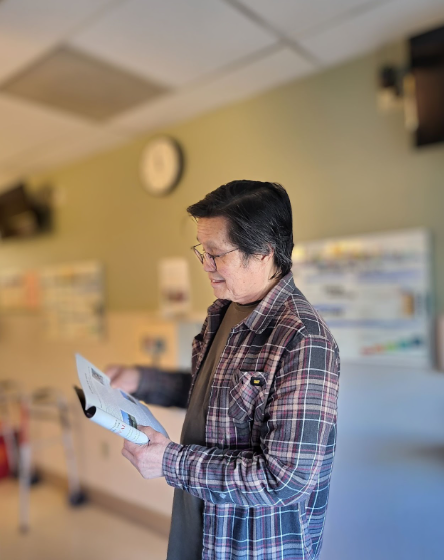The Unexpected Legacy of War Coming Full Circle
- Danae Hendrickson

- Jul 31, 2023
- 3 min read
From the desk of Legacies of War Board Member, Sophia Tran-Vu

My parents never wanted to leave their beloved home country of Vietnam. After the Fall of Saigon in 1975, they both had no choice. Their stories are recognizable by many whose families immigrated to North America to escape their native countries internal conflicts. For my parents, how they came to Canada and rebuilt their lives was a critical pillar for our family history.
They both left Vietnam by boat to refugee camps in the late 1970s. My mother and her family landed in Thailand, while my father went to Indonesia with his.
My mother’s family was sponsored by a group of Canadian doctors in Kirkland Lake, Ontario. The Canadian government at the time encouraged and incentivized Canadian citizens to sponsor refugees from the war.
My father, however, had his sights seton the United States. Unfortunately, my father’s older brother made the decision to go to Canada instead as the wait to enter the United States was longer. At the time, the Canadian government was sponsoring refugees themselves. To say my father was disappointed was a severe understatement.
By the early 1980s my mother and father both found themselves in Calgary, Alberta, Canada. This is where they met, got married, and had my sister and I. A few years later, we moved to Vancouver, British Columbia where we ended up growing up until we finished university.
Throughout my childhood, both my parents were incredibly candid and open about their memories of Vietnam and their respective journeys to Canada. Their stories provided my sister and I a very strong understanding of our family’s history and identity. At the time, we didn’t think too much of our story. It wasn’t all that much different from the stories of our friends growing up in Vancouver who were mostly 1st or 2nd generation immigrants in Canada.
It was only when I began my career in financial services and transferred to my company’s New York office in September 2010 that I realized how unique our family’s story was.
I ended up encountering a generation of people who lived with vivid memories of the controversial Vietnam War. When asked, I never shied away from sharing our family’s story. To me, it was quite normal. It was through that storytelling that I realized how many people didn’t actually know anyone that was directly impacted by the war itself. My family’s story left an imprint in people’s minds and very likely humanized the war.
My move to the United States also gave my father closure. I remember one specific phone call I had with him a few days after I had made the move to New York. He reminded me again of his journey out of Vietnam. Only this time, he ended it by saying “I always wanted to go to the U.S. Now, over 30 years later, you helped me finish my race.”

I have now lived in New York for nearly 13 years and am married with two young children. My parents could not be more proud that they have two grandchildren born in the United States.
Here are a few lessons I have learned from sharing my family’s story:
When you share your own story, you open the door for people to begin to humanize one another
Knowing our history creates a foundation for us to build upon for future generations
You have the power to create the legacy you want to leave behind
In 2018, I shared my family’s story with a former Legacies of War Board Member, my then colleague and manager, David Yuttal. Three years later, he remembered my story, and said I was one of the few people he ever met who had been directly impacted by the war. That story led him to connect me with Legacies of War and begin my journey of joining the Board.
It was through storytelling that brought my family story full circle to where it all started. And I believe it is through storytelling that we can continue to support South East Asia and the region to rid themselves of the damages from a war long past.
I am proud to be a part of the Legacies mission to continue to drive awareness of the impact of the U.S. Secret War in the region, and particularly for our brothers and sisters in Laos who continue to be impacted by this war over 50 years later.



